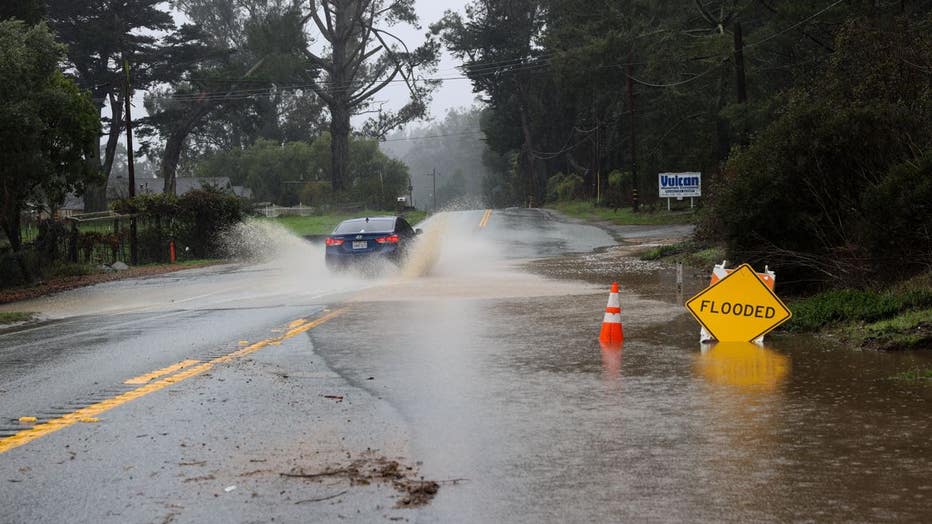Bay Area health officer offers tips when returning to flooded areas

More rain on the way after historic storm
San Francisco had its second wettest day on record in the most recent storm which dropped more than 5 inches of rain on the city. Other Bay Area cities saw huge accumulations. As much as 2 to 4 more inches of rain may fall around the Bay Area this week.
SAN MATEO, Calif. - San Mateo County Health Officer Dr. Scott Morrow warned residents Sunday that floodwater poses health and safety risks for those returning to flooded areas.
"Floodwater can contain all kinds of dangerous materials, and it is obviously best to avoid any contact with the water," Morrow said. "Raw sewage, animal waste, toxic substances, chemical compounds, fungus, bacteria - things you would rather avoid - may be in the water, and you need to take precautions to avoid illness or injury."
RELATED COVERAGE: Calm before storm: Bay Area braces for next strong atmospheric river
Morrow's statement included guidelines for those returning to flooded areas, including: Wear boots and gloves when working in areas that have been flooded.
Be sure the main electrical switch is off before entering a flooded structure. Do not turn it back on until you are certain there has been no damage to wires or appliances connected to the electrical system.
If you smell gas or suspect a gas leak, call 911. Then call PG&E at (800) 743-5000. Warn your neighbors of the potential problem.

CALIFORNIA, USA - DECEMBER 31: A view of flooding on the highway 92 West in Half Moon Bay as heavy rainstorm hits West Coast of California, United States on December 31, 2022. (Photo by Tayfun Coskun/Anadolu Agency via Getty Images)
Wash your hands frequently and thoroughly. If you have children who have been in contact with the water, be sure they wash their hands, too.
Keep children and pets away from floodwaters and avoid outdoor areas that have been recently flooded. Remove shoes and wipe paws before returning indoors.
If you have open cuts or sores, protect them from the water. Keep them clean by washing them with soap and applying an antibiotic ointment to discourage infection. If a wound develops redness, swelling or drainage, seek immediate medical attention.
PHOTOS: Flooding and damage from Bay Area weekend storm
If you swallow floodwater, you should see a physician immediately because of the risk of hepatitis A infection.
"While the hepatitis A virus will not pass through skin, it poses a threat to those who consume floodwater. Your physician will determine whether you should receive a shot of immune globulin to prevent infection," Morrow said.
If you are uncertain about the quality of drinking water, use bottled water. Check with your local water provider for any boil water orders. If you have a domestic well, it may require disinfection if it was impacted by floodwaters.
Don't let children play with toys that have been in contact with floodwater until the toys have been disinfected. You can disinfect toys using a solution of 1/4 cup of bleach in one gallon of water.
For general disinfection of surfaces, use a cloth soaked with 1 tablespoon of bleach in one gallon of water.

Extreme rain wreaks havoc in Bay Area
From flooded homes to road closures, many throughout the Bay Area felt the impact of Saturday's storm.
If the power was off, throw away all discolored or foul-smelling food, especially meat, poultry and fish in the refrigerator. Freezer foods may last from 48 to 72 hours if the freezer is full and the door remained closed. If in doubt, throw it out.
Contact your local sewer authority if solid waste from sewage is visible.
Contact your insurance company for additional guidance if your home sustained water damage.

